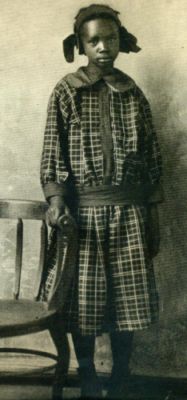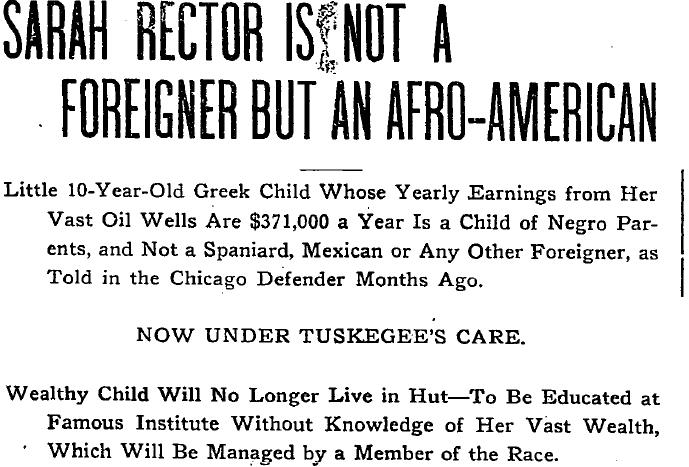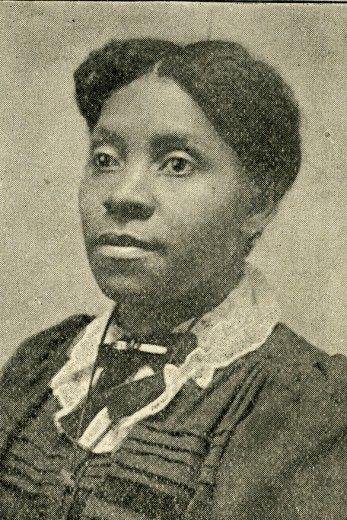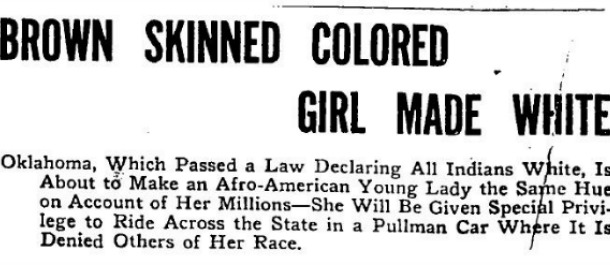 Yup, you read that headline right. The overlooked descendant of Africans and Creek Indians was born in 1902 in Indian territory before it was christened Oklahoma. The Treaty of 1866 had doled out land to Creek Freedman minors, and she inherited a parcel of land when she was born. The land was over sixty miles from where she and her family lived and was highly unsuitable for crop growth. It was assumed to be useless, and her father even attempted to sell it because the annual property tax was out of their budget.
Yup, you read that headline right. The overlooked descendant of Africans and Creek Indians was born in 1902 in Indian territory before it was christened Oklahoma. The Treaty of 1866 had doled out land to Creek Freedman minors, and she inherited a parcel of land when she was born. The land was over sixty miles from where she and her family lived and was highly unsuitable for crop growth. It was assumed to be useless, and her father even attempted to sell it because the annual property tax was out of their budget.
Fortunately her father was denied, so he leased the land to the Standard Oil Company, who struck oil and began bringing in 2500 barrels from the land a day. Sarah quickly accumulated wealth from the daily $300 income from the Standard Oil Company. A law in Indian territory required that all full blooded indians and black adults and children who owned significant amounts of property or money were to be assigned to respected white guardians. Sarah’s parents were stripped of their guardianship and she was passed along to a local white man who was put in charge of her affairs. As Sarah’s wealth grew, so did the buzz about her fortune.The 12 year old Rector began receiving marriage proposals and requests for loans and gifts. Four German men even proposed to her. Rumors pulsated around the world about the wealthy Rector, who some theorized was a white immigrant being held captive in Indian Territory.

 Another rumor claimed that her white handler was squandering her fortune and treating her poorly. A black newspaper in Chicago published the story, leading several black leaders to intervene on her behalf. This directly led to the establishment of a children’s division of the NAACP, initiated by W.E.B DuBois. Rector continued to be under the control of white guardians, however… as they claimed that she was not suitable to manage her own fortune. Her situation was so precarious and her wealth so vast that she was granted the rare privilege of being seen as white in the eyes of the law.
Another rumor claimed that her white handler was squandering her fortune and treating her poorly. A black newspaper in Chicago published the story, leading several black leaders to intervene on her behalf. This directly led to the establishment of a children’s division of the NAACP, initiated by W.E.B DuBois. Rector continued to be under the control of white guardians, however… as they claimed that she was not suitable to manage her own fortune. Her situation was so precarious and her wealth so vast that she was granted the rare privilege of being seen as white in the eyes of the law.

By the age of 18, she was a full blown millionaire, but people continued to try to control her and her fortune until she was in legal control of it at the age of twenty. She went on to own real-estate, businesses, and enjoyed driving fast cars. Though she spent a lot of money lavishing herself and her three children with gifts, she was noted for being charitable with her fortune. Sadly, like most Americans, she lost most of her money during the Great Depression. Sarah Rector died in 1967.
Further Reading:
Searching for Sarah Rector: The Richest Black Girl in America (Tonya Bolden)
